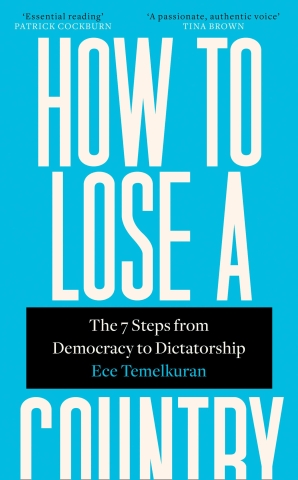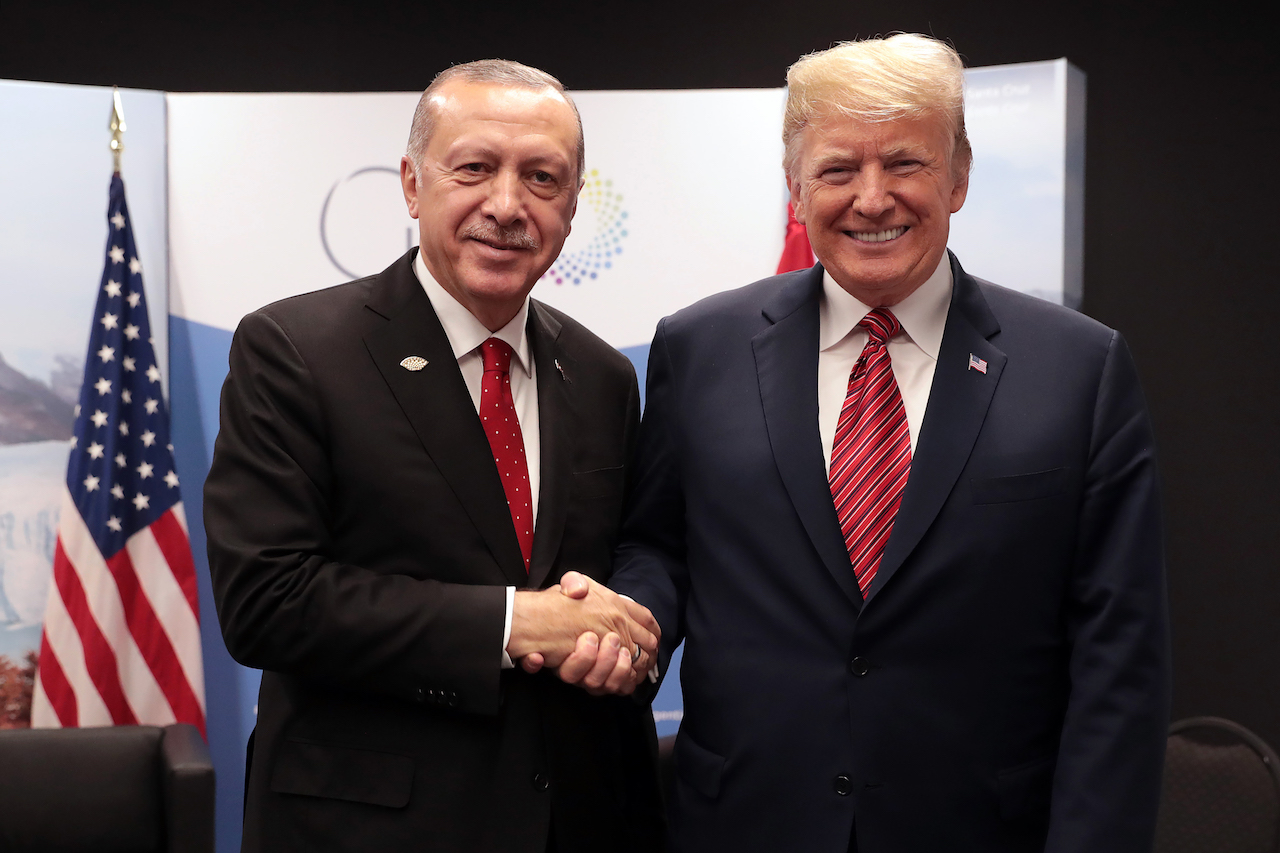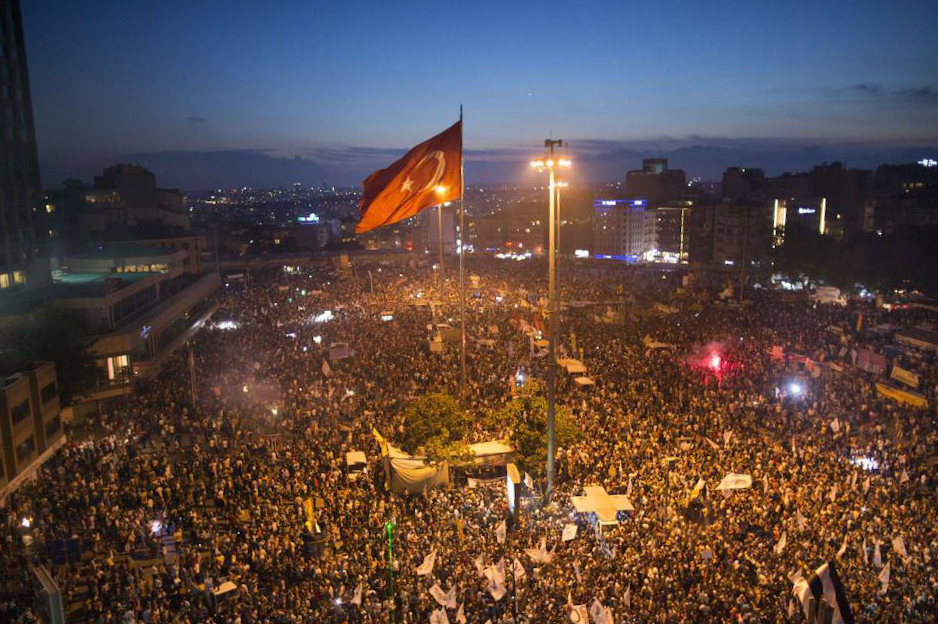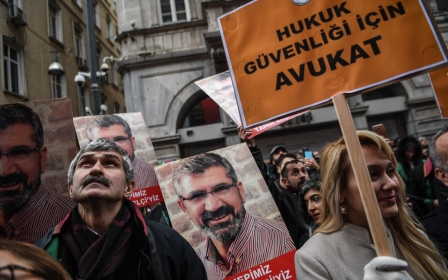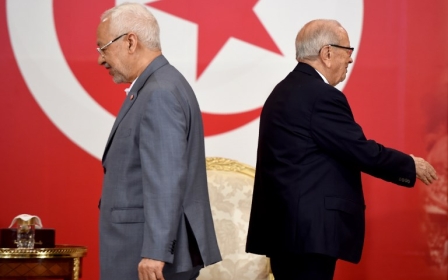Ece Temelkuran: Turkey's right-wing populism and its lesson for the world
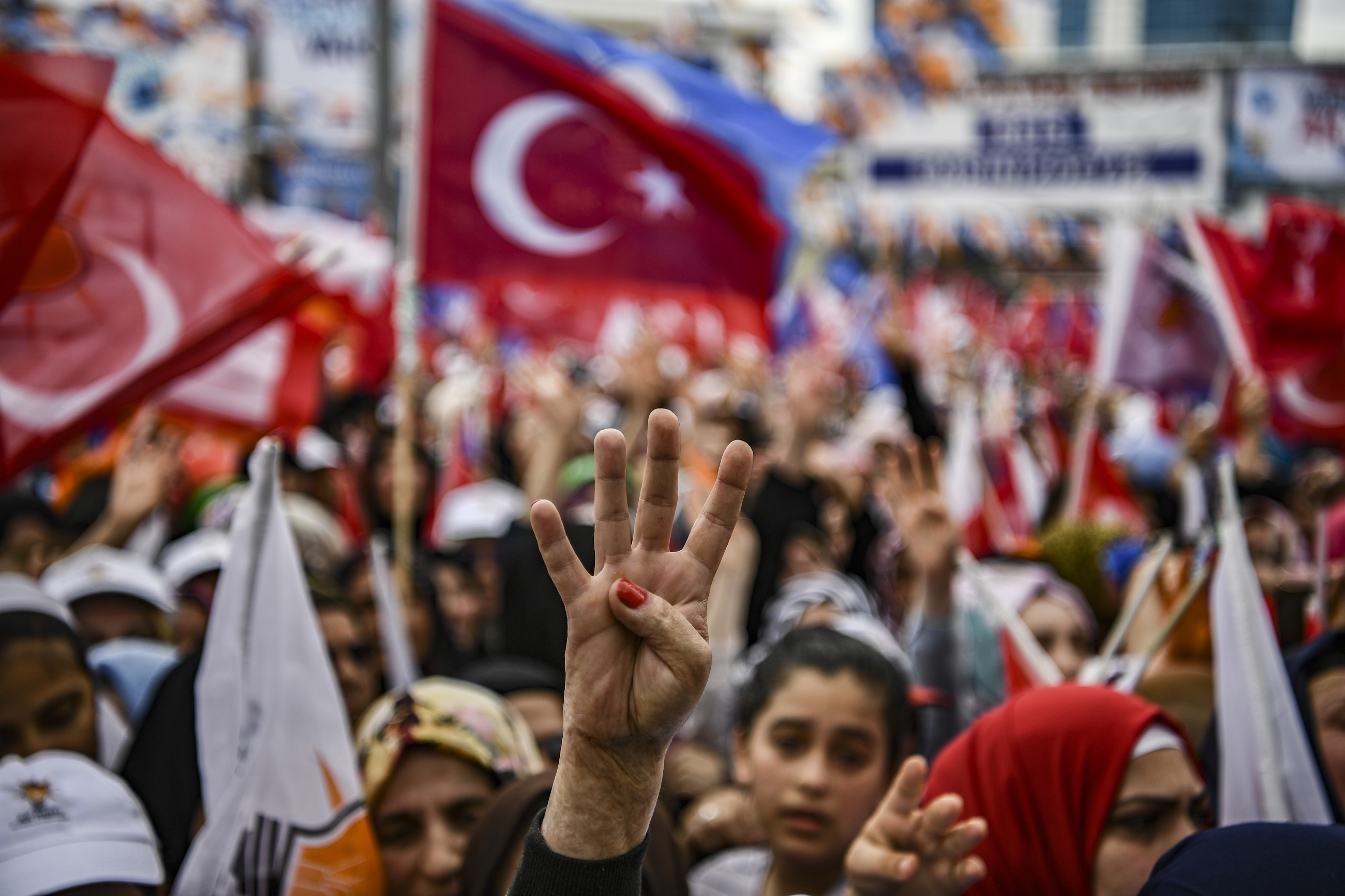
The rise of the "populists" has been one of the international media's favourite subjects in recent years - the perceived breakdown of the post-Cold War liberal consensus and rise of vulgar, common-sense-talking strongmen is now a focal point of modern political analysis.
The fracturing of long-standing institutions, the rise of governments hostile to critical reporting and movements willing to take to the streets for their leader or cause, the veneration of family, religion and nation - all these indicators have fed into a much-discussed crisis of liberal democracy.
In her new book How to Lose a Country: The 7 Steps From Democracy to Dictatorship, Ece Temelkuran tries to weave the process of a country's slide into authoritarianism through her own experiences both in Turkey and abroad, and issues a warning to others who think "it can't happen here."
Temelkuran has long been established as one of Turkey's most famous and well-respected novelists and commentators, once referred to as the country's "most read columnist".
The author is no stranger to controversy. She lost her job as a columnist for Haberturk TV in 2011 after criticising deadly Turkish air strikes against Turkish Kurds in Iraq. The past years, though, have placed her in an increasingly hostile landscape.
"I wanted this book to echo beyond the echo chambers, because there are many books about populism, it’s almost become an intellectual industry now," she tells Middle East Eye, sitting at a table inside a Caffe Nero near the BBC's Broadcasting House in central London.
"Many of those books are speaking to each other rather than speaking to the reader. Academics and opinion makers do not in their daily lives necessarily meet with right-wing populists, so this book is written for those who do meet with supporters of right-wing populist leaders. So I wanted to talk to them in fact."
In her book, Temelkuran pinpoints the aftermath of the 2016 coup attempt, when a group of army officers allegedly led by followers of the US-based cleric Fethullah Gulen attempted to seize control of the government from President Recep Tayyip Erdogan, as a sea change.
In the wake of the failed coup, hundreds of thousands of people have been arrested, fired from their jobs or pushed into exile. A state of emergency was declared soon after, followed by a referendum the following year that gave the president more powers.
'Real people'
In retrospect, Temelkuran traces her first inkling that something new was going on the autumn of 2002, when as a reporter in her late twenties she found herself listening to a spokesperson from the relatively new Justice and Development Party (AKP) speaking in a small town in central Anatolia.
"We are the people of Turkey. And when I say the people of Turkey, I mean the real people," the spokesperson says. At this point, contrary to some of her contemporaries, she says she predicted the party's victory in the upcoming elections.
The concept of the "real people" is central to Temelkuran's book - the idea of an erstwhile silent majority breaking out to challenge a perceived elite who have become decadent and unresponsive to the needs of their constituency.
Those on the outside are marginalised, and dismissed as unrepresentative or traitors, left asking the question: "Is this my country?"
Speaking on the last leg of a tour promoting the book, Temelkuran is tired. It's important that progressive forces do not become complacent, she says.
"Sometimes being desperate is more comfortable, because sometimes being hopeful again, there is fear of disappointment".
"Being disappointed again - it devastates people", she says.
In June 2018, many opponents of Turkish President Recep Tayyip Erdogan had thrown their weight behind the Republic People's Party (CHP) candidate Muharrem Ince, a firebrand social democrat who attempted to fight on some of the same populist ground that had proved successful for Erdogan and the AKP in previous elections.
Those who previously dismissed the political process in Turkey as fundamentally broken, viewed the poll as the last gasp of democracy in the country, and threw their weight behind the CHP candidate.
But despite everything - and in the face of a severely restricted media, arrests of opposition activists and accusations of voter fraud - the result was no different than many years before.
"I was so angry because I supported him as well and I don’t support politicians normally, except for Selahattin Demirtas, and this was the second time," said Temelkuran, referring to the leader of the left-wing HDP, who is now in jail.
"It was a big, giant disappointment."
Now, Temelkuran says, she sees it as her duty to make sure others are aware of the warning signs - that there is no time for delay as the far-right surges in the rest of Europe and America.
"When I speak to British people now it’s not easy to hear that their country has become like my country ten years ago," she explained, citing the rise in xenophobia and mistrust that arose in the wake of the 2016 Brexit vote.
"I mean, even the most open and progressive ones are quite sceptical about what I say - but when I start giving specific examples, they often accept it’s true."
Modernisers
One often overlooked aspect of the rise of Erdogan, Russia's Vladimir Putin and Hungary's Viktor Orban is that all three were once feted in the halls of power in western Europe and the US as modernisers - ensuring stability in their countries, entrenching their alliances with the West and, crucially, opening up to world markets.
Shortly after obliterating the city of Grozny in Chechnya, Putin was being wined, dined and defended as a "reformer" by then British Prime Minister Tony Blair at his official Downing Street residence. In 1998, Orban brought Hungary into NATO to the adulation of then US Secretary of State Madeleine Albright.
Similarly, under Erdogan's stewardship, the Turkish model was held up as an example by the US and EU for other Muslim-majority countries. A blind eye was turned to the hollowing out of the police, judiciary and other institutions by the AKP and their then-allies in the Gulen movement. The trumped-up charges levelled at their opponents in the Sledgehammer and Ergenekon trials were ignored.
The AKP were hailed outside the country for their prudent fiscal policies, engagement with NATO and Israel and their pro-EU reforms. They were backed by liberals for neutralising the power of the army, ending the public sector ban on headscarves and loosening restrictions on Kurdish cultural and political rights.
While these constituencies have mostly abandoned the party and its leader, the core of the AKP support base - the central Anatolian lower middle class - have stayed loyal, while a Turkish ultra-nationalist constituency, originally turned off by Erdogan's embrace of Kurds and Europe, have risen to support him over his tough stance on the Kurdistan Workers Party (PKK).
The common narrative of Erdogan as a proponent of a benign "Islamic liberalism" who went off the rails in the second decade of the century holds little truck for Temelkuran, however.
"There is always this coalition in the beginning of the right-wing populists' rise: cynics and some leftists think, 'oh it’s good, someone is finally shaking the establishment, it’s going to be fun to watch this', and so on," she says.
"And they think that a new dawn will break right after the collapse of the establishment - which doesn’t happen."
Pride and dignity
The AKP were swept to power on the back of a financial crisis.
Since the 1980 coup, which crushed once powerful left-wing movements in Turkey - "I grew up on the defeated side," says Temelkuran of the event - military-backed governments pushed neo-liberal reforms on the country and opened it up to foreign investment.
At the same time, a new form of Islamic identity politics was promoted by the military as a populist alternative to socialism, which remains very popular with the Turkish people, when they are polled on the subject.
"It wasn’t a democracy - it wasn’t a proper democracy, obviously," says Temelkuran. "But there was a struggle for democracy. That makes a lot of difference, and now there is no struggle for democracy. It is not allowed. "
After enduring a number of fractious coalition governments in the 1990s, Turkey's economy underwent a cataclysm in 2001, resulting in a recession and rocketing unemployment and debt.
Erdogan and his allies' promises of financial reform, investment and a crackdown on corruption appealed to a desperate population. The AKP's policies over the next decade saw soaring growth rates, driven by a construction boom, and large flows of hot money into the country as it became more attractive to foreign investment.
The "economic miracle" helped bolster Erdogan's support for years, particularly as he pushed investment towards areas of the country that had previously been neglected. But the social contract built by AKP clientelism risks collapse - the lira has plummeted and in 2018 unemployment rose to more than 12 percent.
Erdogan and his supporters' reaction has been to blame outside forces for waging an economic war on Turkey. Alternative narratives fail to reach the surface in a heavily restricted media environment.
"I think right-wing populists hijack the anger of populists all around the world and once that anger is hijacked, it’s not easy to get it back from the hands of right-wing populist ideas and movements, and in Turkey that anger is hijacked by the AKP," Temelkuran, who was accused of being one of the organisers of the Gezi Park protests of 2013, says.
'Anatolia is an old land. It has seen sultans, a lot of them'
- Ece Temelkuran
But, she explains, "there is a political reaction gathering. I don’t know if they’re exactly doing the right thing, but there is a reaction growing and its gathering some political power".
"Especially in the US, the new generation of the Democratic party - which started with Bernie Sanders, in fact. But I think they should be more effective, quicker and they should be focusing more on human dignity."
Temelkuran now lives in Zagreb, in Croatia. Although she has not faced jail or a ban like many of her peers, she said she was unlikely to be returning to Turkey any time soon.
While her warning is aimed largely at Europe and America - and could potentially encompass the likes of Japan, Israel, India and other countries with ascendant ultra-nationalists - as far as Turkey is concerned there seems to be little space left now to turn the tide. Supporters of democracy and equality will have to play the long game, she argues.
"Anatolia is an old land. It has seen sultans, a lot of them. Cruel ones, merciful ones, just ones, unjust ones. I think the people of Anatolia, somehow in their genes it’s encrypted, they know how to wait. They resist and then they stop when they feel they cannot deal with it - and they wait. Sometimes it feels like that to me," she said.
"Maybe they will be waiting for a while now."
Middle East Eye propose une couverture et une analyse indépendantes et incomparables du Moyen-Orient, de l’Afrique du Nord et d’autres régions du monde. Pour en savoir plus sur la reprise de ce contenu et les frais qui s’appliquent, veuillez remplir ce formulaire [en anglais]. Pour en savoir plus sur MEE, cliquez ici [en anglais].


